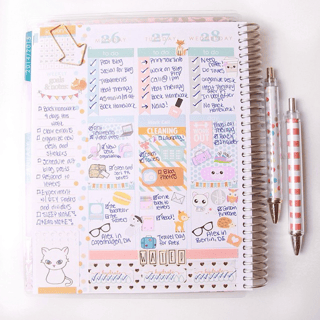
One of the startling things about college can be how little time you spend in class. Two or three times a week for a total of three or four hours per class may seem very strange when you compare it to your high school schedule. Amazing: you can sometimes manage to schedule days without classes! This is because in college you are expected to take it to the next level and learn to put time into your own learning using the structure given to you by your professor.
This doesn’t mean class time doesn’t matter. To the contrary, many professors plan to tackle the hardest parts of the reading in class. And professors often are assuming that you will tell us what you didn’t understand so we can help in class. Class time is also a time when you contribute to and benefit from others in the class—a kind of crowd sourcing where the professor may orchestrate big ideas out of individual contributions. And class time is also your time to demonstrate the work you have been doing whether by discussion participation, lab work, or quizzes as part of the grade you will get.
Class time keeps you in touch with how deeply you should be engaging with the reading and the kinds of knowledge you are supposed to be drawing from it. But out of class time matters a lot. That is not free time; it is study time. Different people will have a favorite number to fill in: “You should be spending X hours of time outside the classroom for every hour you spend in it,” where X is usually more than 2 and can go as high as 4-6.
Preparing for Class
We’ll start with the most basic information: in college the reading assignment listed next to the date means you come to class on that date already having read what is listed next to the date. College professors almost never think that what they will do in class is “go over” or “review” the assigned reading in a way that would substitute for doing the reading well yourself. College professors also don’t think it would be OK for you to pass your eyes over the reading without really thinking a lot about it and then come to class to take notes on “what’s important.” That’s more of a high school thing.
Professors usually assume that you come into the classroom ready to hear a lecture or participate in a discussion of the implications or the applications of the reading or to compare what is said in the reading with other readings the class has done on the same issue. In other words, being able to explain what the reading said and remember specific details about it (whether these are scientific evidence or the details of a novel) is the minimum requirement you bring to class. This is why professors often will seem so worked up about a quiz that reveals a high level of non-readers in the class: you didn’t do the bare minimum and we can’t have the college-level conversation we wanted to have. We’re stuck in high school.
1. Make a Plan
So make a plan to use that awesome class-free time! If you have a part-time job, family responsibilities and/or campus life activities this flexibility makes that possible. But whether you work or not, no time that is outside of class and work is “free” until you’ve done your class prep. Sorry to be a downer but if you sit and write yourself an hour-by-hour schedule of what you need to do to prepare for class into your planner alongside your other activities, there won’t be much “free” time. Know your schedule and don’t let silly things steal your time from you. As a professor I often have a conversation with my colleagues that starts this way: “We would have to pry those smartphones and tablets out of their cold dead hands and yet they can’t use them to write themselves schedules and study plans and reminders? I don’t understand. Isn’t there an app?” Do a new schedule every week AND be looking ahead to weeks that have big unavoidable time sucks like Trip Home to Set Up Mom’s Birthday Party or Doing Double Shifts So My Friend Can Take Care of Her Sick Child. When you know you’re losing time the next week, read ahead this week.
It would be a good idea if you set a timer to see how long it takes you to read an average assigned reading in the first few weeks of class. Then you won’t say unrealistic things to yourself like “I’ll read the assignment in the half hour before class at breakfast” or “I can quickly read the assignment when I get back from team practice and still be in bed by midnight.” Write down on your syllabus how many minutes per page it really takes you and then calculate and write down next to each reading assignment how many hours really it will take. Then use that information to plan your week.
2. Go Beyond the Bare Minimum
What will you need to do for class prep? First, that bare minimum I mentioned. Make sure you do the reading assigned all the way through and have a sense of what it is explaining or arguing (at the level that you would be able to state the ideas in your own words in class). Make sure if you are reading literature that you have a pretty good sense of not just the basic “what happens” but the details of it—someone travels to a city, you know the city. Character buys some items, you know what they are. If you are reading in the sciences be able to say what evidence was used. If you are reading history have a sense of the causes and cultural trends that the author notices. Write down questions about things you don’t understand. That’s the least of what you should go to class with.
Second, if you don’t want a bare minimum grade, you’ll want to do more than the bare minimum! Read it again, paying careful attention to the parts you didn’t understand. Maybe you need to look up some more words, maybe you need to write the main idea of each paragraph in the margin (or in a separate document) and try to follow the overall argument of the reading that way. Take a little time to imagine and write some notes about how you would argue against AND for the main points in the reading. If that mode isn’t applicable to your course, you could make some notes about how the assigned reading helps solve the kinds of problems you work in your course. Are there sample problems in the reading? Don’t just glance at them, try to work them to get the same result. Try putting in a different problem to see if the equation works the way you expected it to. Look back at your notes from previous classes and take a few notes on how you might answer similar questions about a previous reading if they were asked about your current reading.
Hey, remember what I said about writing yourself schedules before? Keep track of how long things take. As you get better and better at knowing how much time class prep takes you’ll make your schedule more realistic. Pssst, there is a timer on your clock app on your phone and computer. And don’t be afraid to go to the professor in office hours and ask, “what is your ideal of how a student would prepare for your class?” And cheer up—prepping for class gets easier when you practice it a lot.
3. Review, Review, Review!
After class, on the same day, go over the notes you scribbled in class. Fill in longer explanations for what you wrote just a few words for thinking “I’ll remember”—you won’t. If you managed to only get a page number on something the professor referred to that you meant to go back and look at and fill in now’s the time. If some things you found confusing were cleared up, go back and revise the notes you took on the reading. Some people go so far as to rewrite (or use the computer) their class notes neatly and in fuller and more organized form at the end of every class day. This seems time-consuming because it is. But at the end of the semester these notes will be your study notes and guide for final exams and papers.
See what I mean about how all that free time really isn’t there? Sorry. But here’s a hint: a lot of wasted time in college is time spent on little things. You have 2 hours between classes and go back to your room, where you run into your roommate and you Netflix a couple of episodes and eat snacks before your next classes. Nope. After the first class go to the library. Go to a quiet study area. Get some reading done or review the class notes. Memorize verbs for language class. You go to dinner and more friends keep coming in and you keep hanging out. Nope. Finish your dinner, go do your work and then take some real time off and get to bed at a decent hour. I’m not saying you have to work every minute. I’m just suggesting that you manage your time so the free time there can be is truly free and truly regenerating. Texting, phone calls, checking the phone—get rid of that for study time. Your class prep time will be shorter without distractions. Then when you’re done, do something fun with the time you snatched back.
4. Don't Lose Sight of Due Dates
OK let’s say you have mastered the week-by-week art of class preparation. Again, this is about planning. Many students go day-by-day feeling like they’ll start preparing for exams or papers or whatnot when it gets close to the deadline. Maybe the last weekend before the due date? Whenever the professor starts talking about it? Then a mad rush where you fall behind in all your other classes. Nope. Not you. You’re a planner, remember?
You know the due dates. They’re on the syllabus. So work backwards. When do you want to have your first draft done? When should you have your review notes ready—will you start studying 4 days before the exam? 5? A week? Wouldn’t it be nice to hit that day and have the study sheets already done? How many hours will you spend in each study session? It’s easy to say “oh the professor said she’s giving us sample questions closer to the time” and just wait. But why would you wait? In the meantime, you could be making yourself a review sheet, going back over the readings you were weakest on, forming a study group from the class, talking to your professor about things you didn’t understand early, reviewing your equations and collecting the problem sets you are going to practice with, starting to do the research that the assignment requires, brainstorming a paper topic. “Oh shouldn’t I wait till the end of the unit to read all the texts I’d have a choice of writing about?” Nope. You COULD read ahead. Or you COULD choose early. Or you COULD begin to start taking notes on what aspects you are interested in, maybe talk to the professor about it in the two weeks before the mad rush. No, of course you can’t write the midterm paper in the second week of class. You’re learning. But there’s got to be middle ground between writing it before you’ve learned anything new and writing it the night before.
The Bottom Line
Organized class prep leaves you time for intellectual curiosity and depth, for community participation
There are subjects and classes that are special to you. Maybe they’re the ones you want to do your life’s work in. Maybe you just got seized by excitement the first time you encountered them. Maybe this is just an extension of the way you geeked out on knowing all about comic books or anime or fashion in high school. Whatever it is, that’s what college is for, and planning helps you have time for extra exploration, going beyond just what is offered in a particular class. Maybe you want to do extra readings, or attend a talk by a visiting scholar that your professor announced just because you want to know more. Students who do this are yes, smart, curious, passionate, and all that. But that’s only part of it. Students who do this, who end up with senior thesis projects or inventions or internships because they go the extra mile have to be able to prepare for class and be realistic about how many hours there are in a day. Because no matter how brilliant you are there are only 24 of them! To decide how you want to spend your time, you need to be caught up on your classes. Preparing for class seems to take up time but in the end it releases time for other things while making sure you earn the grades you want.
Pat went to college at the University of Pennsylvania in Philadelphia and majored in biology and English and then worked as a paralegal in Washington, D.C. while she decided whether to go to law school or graduate school in English. She eventually went to the University of Chicago and received an English literature Ph.D. She learned to love Boston while teaching at Brandeis University and has returned to the city after some years teaching at the University at Albany, State University of New York and a fellowship at Amherst College’s Center for Humanistic Inquiry. She is the author of Race, Nationalism and the State in British and American Modernism (Cambridge University Press) and is at work on a second book.
Are you interested in working with Pat?
Craving more tips on study skills? Read some of our previous blog posts below!



Comments